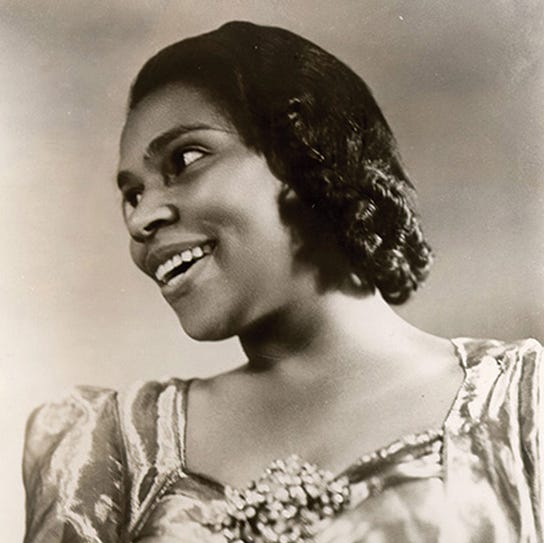Marian Anderson made history as a black opera singer, and yet opera was rarely in her repertoire. In her concert programs, Anderson usually favored lieder (German art songs) and African American spirituals. Released in 1931, this recording of “O Don Fatale” from Giuseppe Verdi’s Don Carlo is one of the rare instances where Anderson lends her powerful and pure contralto to an operatic score.
More than twenty years later, Anderson would play the fortune-teller, Ulrica, in Un Ballo in Maschero, again by Verdi, and become the first black artist to perform at the Met in a named role. It is her one and only opera performance. Throughout her life, Anderson made a habit of breaking down barriers. She is best known for her 1939 open-air, Easter Sunday performance at the Lincoln Memorial in D.C., after racial prejudice prohibited her from performing at Constitution Hall. Her work opened doors for many talented black artists to come. However, Anderson always considered herself an artist first, not an activist. It was against her will that she became a symbol of civil rights, but she knew she couldn’t walk away.
Casey is a new transfer student, finishing up her first semester at Rowan. She is currently pursuing a major in Writing Arts.
Her musical roots are classical and opera, but she’ll give anything a listen; right now, she’s deeply into mandopop. In her spare time, she enjoys singing, writing, baking and gaming. Her idea of a perfect day would begin with a solitary walk in the early morning – unfortunately, she usually greets the dawn from the wrong way round, being a chronic night-owl.
